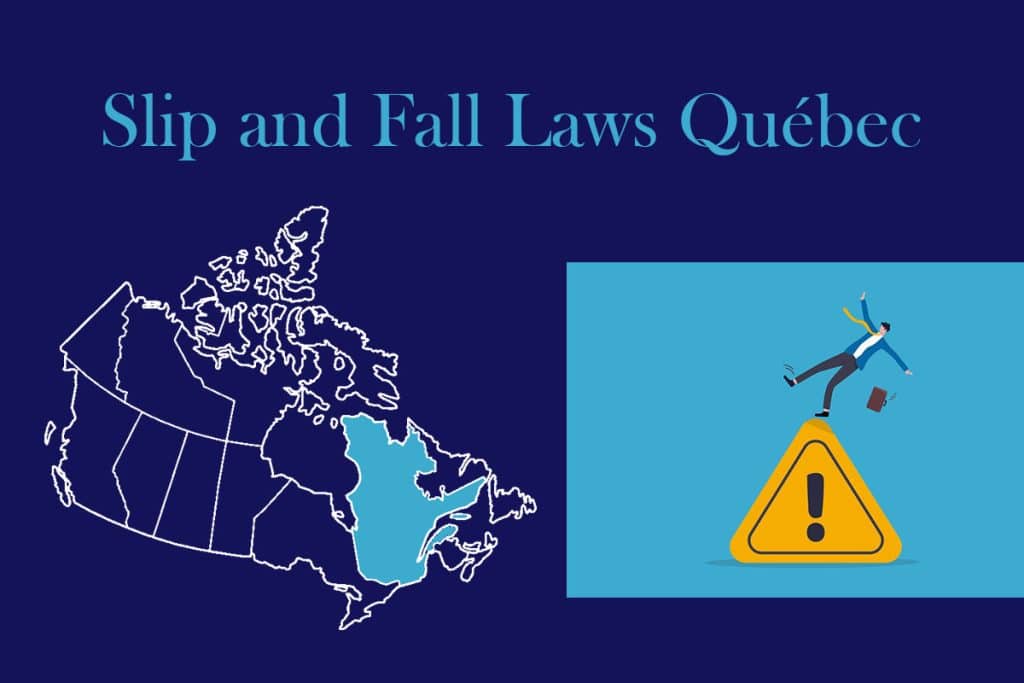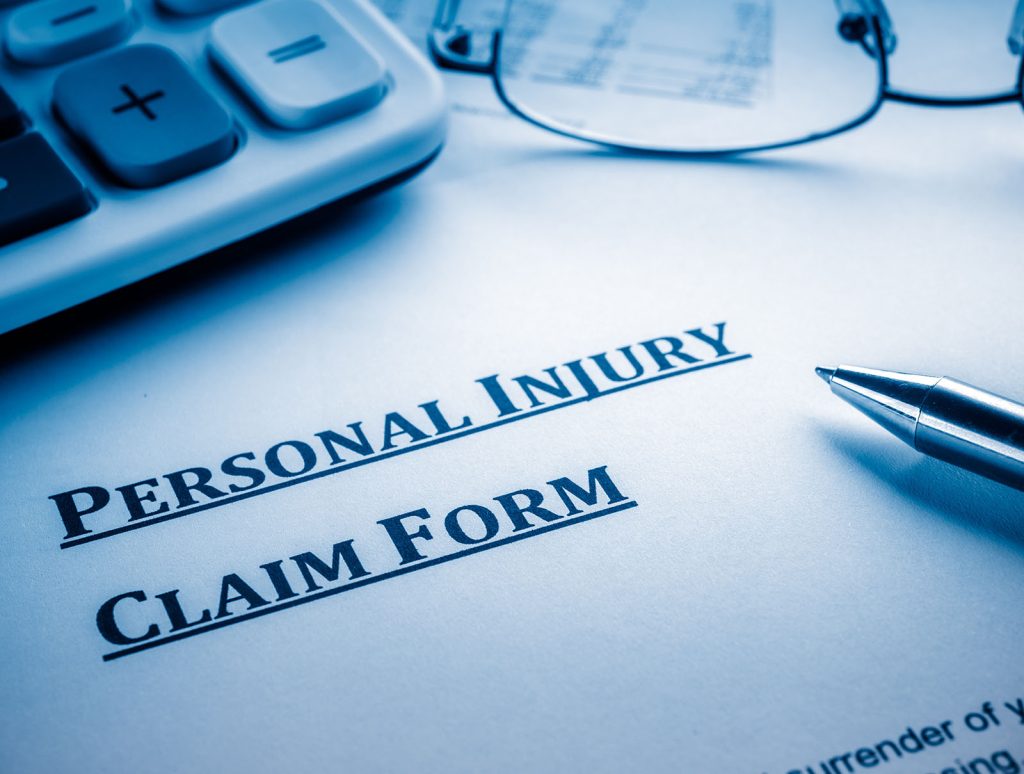
Québec slip and fall laws: What happens if someone suffers injury on your property?
Under section 1457 of Québec’s Civil act, all persons in the province have a legal obligation not to cause physical injury to another. Failure to practice that duty of care may result in civil and criminal charges. Property owners and employers could be liable for injuries due to employee actions or inactions.
- You have two years to file a claim if the accident does not occur on government property.
- You owe a limited duty of care to trespassers.
- Victims of a slip and fall accident may sue for medical bills, property damage, pain and suffering, lost wages, or other damages.
- Property owners could be liable for damages done by an animal or autonomous property.
- Do not admit fault at the scene of a slip and fall accident.
References:
Quebec slip and fall laws explained: What should I do if a customer slips and falls?

Provincial civil laws obligate occupiers, property owners, and employers to ensure that their premises are reasonably safe for anyone entering. That duty does not extend to trespassers and criminals. However, acting with reckless disregard for human safety may result in criminal negligence charges under Canada’s criminal code.
“Reckless disregard” means that you are aware of a potential danger associated with your actions, and you intentionally ignore the consequences. For example, installing traps for trespassers may result in criminal charges.
Quebec property owner/occupier duty of care
Section 1457 states that quote:
“Every person has a duty to abide by the rules of conduct incumbent on him, according to the circumstances, usage, or law, so as not to cause injury to another. Where he is endowed with reason and fails in this duty, he is liable for any injury he causes to another by such fault and is bound to make reparation for the injury, whether it be bodily, moral, or material in nature. He is also bound, in certain cases, to make reparation for injury caused to another by the act, omission or fault of another person or by the act of things in his custody.”
An occupiers/ property owner’s duty of care in Quebec applies to:
- The condition of the property. Acts of negligence or failure to keep the property safe may lead to civil action.
- All activities on the property.
- The conduct of employees and third parties on the property.
Remember, section 1463 reads, quote:
“The principal is bound to make reparation for injury caused by the fault of his subordinates in the performance of their duties; nevertheless, he retains his remedies against them.”
What to remember.
- You could be liable for any damages caused by an “autonomous thing” or a slip and fall accident caused by an animal.
- It is an affirmative defense that the victim suffered an injury because of a “superior force.” Superior force refers to an unforeseeable and irresistible event.
- Persons who come to the aid of a victim are exempt from liability if they are not at fault and the act was not intentional.
What to do if a customer gets injured on your property in Quebec?

If someone gets injured on your property, the risk is a civil lawsuit or criminal charges if the victim can prove reckless disregard for human life or gross negligence. Because of that, legal experts recommend that you do the following whenever someone slips and falls on your property in Quebec.
- Offer reasonable assistance to the victim. Acting in good faith may reduce the probability of a civil action. Furthermore, if you are not the at-fault party, provincial laws exclude you from liability when assisting an injured person.
- Do not admit fault at the scene. The burden of proof in a slip and fall claim is on the victim, and the individual may use your words or actions against you in court. You may apologize without using words that the victim may use against you.
- Gather evidence, including witness testimonies, photos of the scene, surveillance footage, and anything else you may use in your defense.
- Train employees to never admit fault.
- Call emergency services if it is apparent that immediate care is necessary or if the victim requests it.
- Call your insurer if you have a cover.
- If the media gets involved, let your attorney speak for you.
- Avoid sharing incriminating evidence on social media.
What to do if you slip, trip, and fall in Quebec
Remember, the property owner or occupier is only liable if you can prove that you are not to blame for the accident. Because of that, what victims of slip and fall accidents in Quebec should do is:
- Investigate the scene. Check the hazard. Are there warning signs? Are there signs of negligence?
- If you intend to take civil action, gather evidence, including pictures/videos of your injuries, surveillance footage, and the slip and fall hazard.
- Report the incident to the occupier or property owner before leaving the scene.
- Seek medical help and keep records of expenses, including out-of-pocket payments.
- Do not admit fault at the scene.
- Notify your insurer if you have personal injury cover.
- Consult with an attorney (in small claims court, you may or may not need legal representation).
- Serve notice to the property owner or occupier (an attorney can advise).
How is fault determined after a slip and fall in Quebec?
Under provincial laws, the property owner or occupier is liable if the victim can prove one or more of the following:
- The occupier owed you a duty of care. If you were on the premises committing a criminal act, the law says that you willingly assumed the risk. Thus, the occupier is not liable for your injuries.
- The occupier knew or should have known of a hazard on the property.
- The property owner or occupier created a dangerous condition.
How do you prove owner/occupier negligence after a slip and fall accident in Quebec?
To prove negligence, the claimant must demonstrate to the court:
- The occupier owed the claimant a duty of care.
- There was a breach of duty.
- The breach of duty was the direct or indirect cause of the claimant’s injuries.
The factors the court considers include:
- The victim’s capacity to understand the danger.
- The victims’ negligent actions.
- How long the danger has existed on the property (we recommend keeping logs of safety inspections).
- The occupier’s efforts to notify the victim and correct the hazard.
How is liability apportioned after a slip and fall accident in Quebec?
Section 1478, “Apportionment of Liability” states that quote:
“Where an injury has been caused by several persons, liability is shared between them in proportion to the seriousness of the fault of each.”
Consequently, your share of responsibility for the accident diminishes the amount you may recover in a negligence claim.